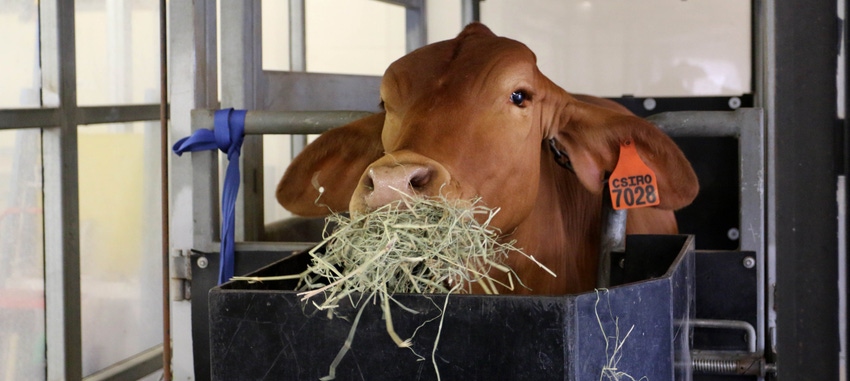Seaweed Asparagopsis has been shown to reduce methane emissions from beef and dairy cattle.
August 21, 2020

Australia's Commonwealth Scientific & Industrial Research Organization (CSIRO) has announced the formation of a new company to take a methane-busting seaweed to market, with $13 million (Australian) secured from five investors.
FutureFeed Pty. Ltd. will commercialize a livestock feed additive made from the seaweed Asparagopsis, which has been shown to reduce methane emissions in beef and dairy cattle by more than 80% in research trials in Australia and the U.S., CSIRO said.
AGP Sustainable Real Assets-Sparklabs Cultiv8 Joint Venture, GrainCorp, Harvest Road, Woolworths and CSIRO have committed to investing in the company, the announcement noted.
The newly established FutureFeed company will develop a full-value chain for the livestock feed supplement, from seaweed cultivation and production through to processing and feed manufacture, in order to supply beef and dairy industries globally, CSIRO said.
The company expects to see commercial volumes of the feed additive supplied into the Australian beef and dairy market by mid-2021, with international markets to follow.
When Asparagopsis is fed as a supplement to cattle, it not only reduces methane emissions but also supports productivity, CSIRO reported. CSIRO has developed and trialed the supplement over more than five years, in collaboration with Meat & Livestock Australia and James Cook University.
“FutureFeed enables agriculture and the environment to be partners, not competitors; helps overcome negative perceptions of the cattle industry, and gives Australian farmers an advantage in the global marketplace as first adopters of this Aussie innovation,” CSIRO chief executive Dr. Larry Marshall said.
“FutureFeed is addressing some of the greatest challenges we face, including food security, sustainable production and climate change, by turning science into a real product in the hands of businesses so they can turn it into jobs and economic growth," he added.
CSIRO scientists estimate that if 10% of beef feedlots and dairy industries were to adopt the feed additive globally, this could reduce livestock industry greenhouse gas emissions by approximately 120 million metric tons per year.
CSIRO said the company will be exploring market options for greenhouse gas abatement payments for livestock producers that adopt the supplement.
FutureFeed was formed from a competitive investment process designed to ensure a mix of investors with expertise across the livestock value chain, encompassing aquaculture, feed supply, beef production and processing and retail, the announcement noted.
You May Also Like


.png?width=300&auto=webp&quality=80&disable=upscale)
